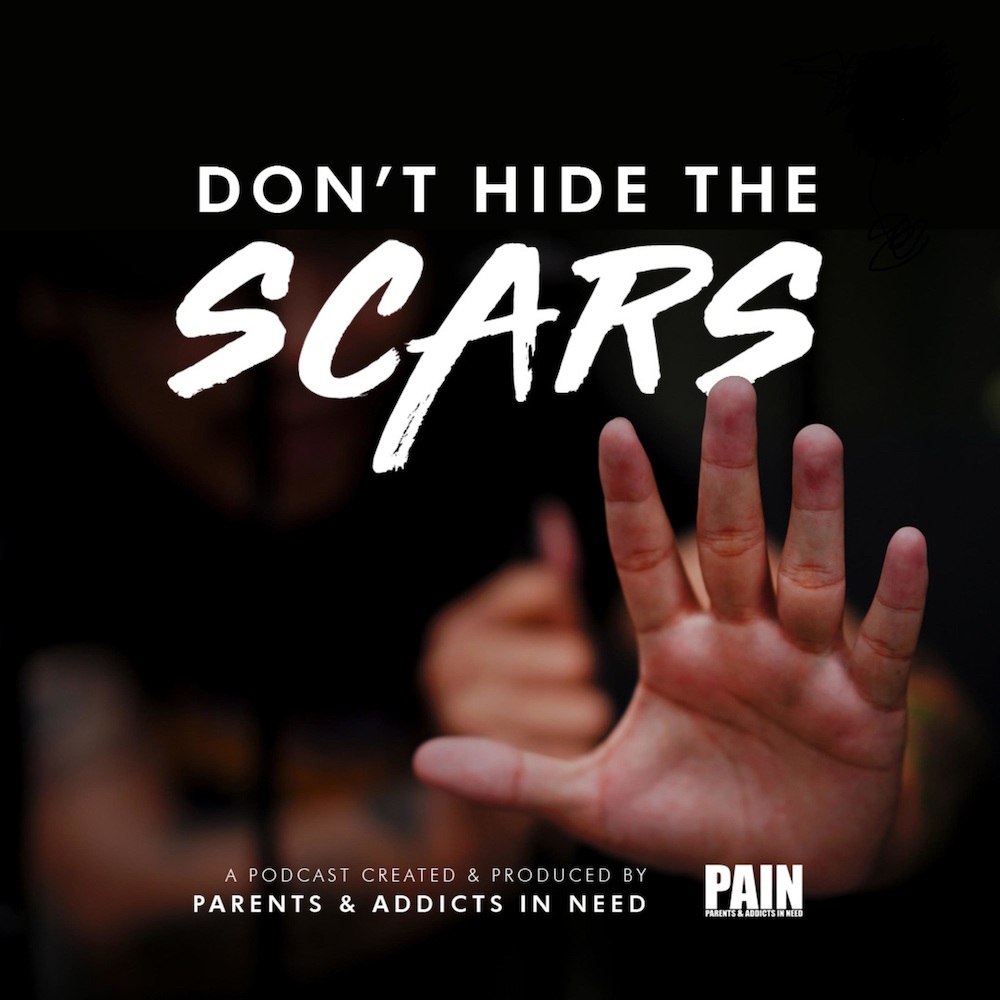
Written by Frank Lopez
While the online world may be rife with podcasts about popular culture, sports, science, history and a myriad of other topics, there is also a growing popularity in podcasts delving into health and wellness — and self-help.
The Don’t Hide the Scars podcast connects with celebrity guests and leading experts to discuss the widespread, illicit drug culture cutting through families, businesses, sports, entertainment and even the safest communities.
Discussion topics include fentanyl and opioid crisis, harm reduction modalities, medication assisted treatment, Narcan, rehab, 12-Step Programs and more.

The podcast was created in 2018 by Flindt Andersen, founder and executive Director of PAIN (Parents and Addicts in Need). The Fresno-based nonprofit founded in 2009 specializing in rehabilitation services, emotional support and community outreach for those affected by substance abuse.
Don’t Hide the Scars is hosted by Jason LaChance, marketing and public relations specialist at PAIN.
It is available on YouTube, Apple Podcasts, Spotify and all other primary audio podcast channels.
Andersen himself had 23-year-plus addiction to opiates, regaining his sobriety in 2001.
“It’s about giving back and helping those that truly need it,” Andersen said. “In this industry, the truth is rarely given, and people need to understand what addiction truly is. There is not much that I don’t know about it, and families in particular needed to know what addiction truly is. There is no quick fix. There is no cure.”
There is a stereotype in society evoking images of homeless drug addicts or alcoholics in the street, but Andersen said not every addict winds up homeless, estimating that 85% of addicts are not living on the street.
Andersen said he came from a good family and had a professional career, but he still got caught in the throes of addiction.
“It affects your job, your family life — it affects everything about what you do from the time you wake up to the time you finally go to bed. It affects every family member, your friends — it has an enormous, profound, ugly effect on all those people, not just the addict,” Andersen said.
He said that when he first started the podcast, there wasn’t a lot of discussion in the general public about the opioid epidemic led by trusted sources.
At the time the podcast debuted, Andersen guessed there might have been a few podcasts regarding addiction.
“It’s a niche that’s exploded, but as far as longevity, “Don’t Hide the Scars” is up there for this topic area and advocacy,” LaChance said.
Social media allows them to pull in people that might not have a full half-hour to listen to a podcast, but can listen to snippets and takeaways online.
Their Instagram has a huge amount of engagement and helps with the listenership of the podcast, especially on their audio platform.
The podcast is not only informational for listeners, but LaChance said that people have reached out to PAIN seeking out information about meetings to help themselves or help someone they love.
Andersen said they’ve received calls from people in Nebraska, Kansas, Illinois, Ohio, New York and even Canada.
PAIN not only offers in house-meetings, but because their reach is so far, Zoom meetings are also available on Wednesday nights.
Don’t Hide the Scars has had about 300 episodes produced since its inception, but only about 160 are available online since LaChance joined three years ago.
Some notable guests on the podcast include former quarterback for the San Diego Chargers Ryan Leaf; stand-up comedian and actor Alonzo Bodden; Tom Farley, writer and brother of the late comedic actor Chris Farley; as well as various actors, politicians and heads of drug enforcement agencies.
The array of guests helps illustrate the whole picture of how substance abuse touches communities, LaChance said.
When it comes to the workplace, Andersen said employees cannot be fired if they come to their employer and make them aware of their addiction.
Under California law, employers are free to terminate anyone whose alcohol or drug use impairs their ability to perform their duties, but employers cannot fire or take negative employment actions against an employee because of their status as an alcoholic or drug addict.
Andersen said that businesses need to get connected with organizations like PAIN to speak to their upper management to recognize signs and symptoms of addiction and make them realize the consequences of not dealing with employees with substance abuse problems.
Some consequences include theft of money or property, and higher insurance rates, he said.
“When you start looking at all the numbers for businesses — the amount of money that has gone through the roof that businesses have to pay over the last 10 or 15 years because of addiction. Costs could be in the billion dollar range — lost time, lost productivity, injury on the job,” Andersen said.
PAIN also makes themselves available to employees so they can reach out and ask for help, he added.
Don’t Hide the Scars has about 10,000 audio subscribers and approximately 600 YouTube followers.







